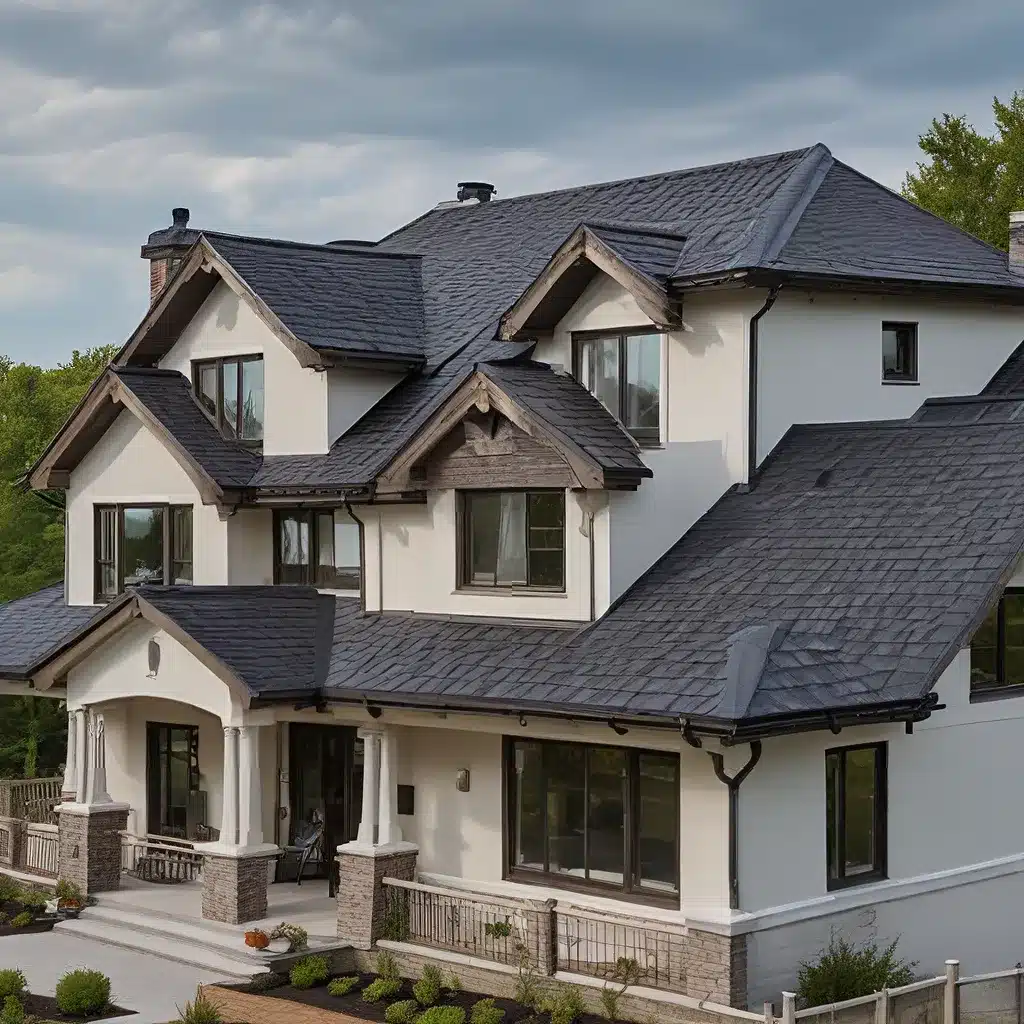
As a homeowner, I’m always on the lookout for ways to make my home more efficient and eco-friendly. And when it comes to roofing, I’ve discovered that it can play a crucial role in achieving these goals. In this article, I’ll dive into how modern roofing solutions can help enhance the energy performance and connectivity of our smart homes.
The Importance of Energy-Efficient Roofing
Energy efficiency has become a top priority for many homeowners, and for good reason. Improving the energy efficiency of your home is a smart investment, as it can lead to significant cost savings on your utility bills and reduce your carbon footprint.
One of the key areas to focus on is your home’s roofing system. The roof is the largest exposed surface of your home, and it plays a critical role in regulating the temperature inside. By selecting the right roofing materials and employing energy-efficient roofing techniques, you can dramatically improve your home’s energy performance.
For example, did you know that certain solar roofing tiles and shingles can qualify for the residential clean energy tax credit? These innovative products not only provide the structural support of traditional roofing, but they also generate renewable electricity from the sun. By incorporating these types of roofing solutions, you can harness the power of the sun to offset your home’s energy consumption and potentially save thousands on your energy bills.
But it’s not just solar-powered roofing that can make a difference. Reflective roofing materials, such as light-colored or metal roofs, can also play a significant role in reducing your home’s energy usage. These types of roofs are designed to reflect sunlight and minimize the absorption of heat, which can significantly reduce the need for air conditioning during the hot summer months.
Integrating Smart Home Technology
As our homes become increasingly connected, the intersection of roofing and smart home technology is an exciting frontier. Smart home features like solar energy storage, energy monitoring systems, and automated climate control can all be seamlessly integrated into a home’s roofing system.
For instance, battery storage technology is now eligible for the residential clean energy tax credit. By installing a battery storage system in conjunction with your rooftop solar panels, you can store the renewable energy you generate and use it when you need it most, further optimizing your home’s energy efficiency.
But the benefits of smart home integration don’t stop there. Energy monitoring systems that track your home’s energy usage can be easily integrated into your roofing system, providing you with valuable insights and empowering you to make informed decisions about your energy consumption.
Moreover, automated climate control systems that adjust your home’s temperature and ventilation based on real-time data can be connected to your roofing system. This can include features like smart thermostats that can regulate the temperature based on factors like the sun’s position and the insulation properties of your roof.
The Role of Roofing Professionals
As you can see, the world of energy-efficient and smart home-compatible roofing is rapidly evolving. To make the most of these advancements, it’s essential to work with experienced roofing professionals who can provide you with the expertise and guidance you need.
Southern Roofing Co., for example, is a team of roofing experts who can help you navigate the complexities of modern roofing solutions. They can assess your home’s specific needs, recommend the most appropriate energy-efficient roofing materials, and ensure that any smart home integration is seamlessly executed.
By partnering with a reputable roofing company, you can take advantage of the latest advancements in roofing technology and ensure that your home is energy-efficient, connected, and future-proof.
Maximizing Tax Credits and Incentives
One of the exciting developments in the realm of energy-efficient home improvements is the Inflation Reduction Act of 2022. This landmark legislation provides federal tax credits and deductions that can help offset the cost of upgrading your home to be more energy-efficient.
The Inflation Reduction Act empowers Americans to make their homes and buildings more energy-efficient by offering tax credits of up to $3,200 annually for energy-efficient home upgrades, including roofing solutions.
But the benefits don’t stop there. Homeowners can also take advantage of the modified and extended Residential Clean Energy credit, which provides a 30% income tax credit for clean energy equipment like rooftop solar, wind energy, geothermal heat pumps, and battery storage through 2032.
By staying informed about these incentives and tax credits, you can maximize the return on your investment in energy-efficient roofing and smart home technology. It’s a win-win for your wallet and the environment.
The Future of Roofing for Smart Homes
As we look to the future, the integration of roofing and smart home technology is only going to become more seamless and sophisticated. Innovations in materials, automation, and renewable energy generation are paving the way for a new era of energy-efficient, connected, and sustainable homes.
Imagine a future where your roof not only provides shelter but also generates electricity, monitors energy usage, and automatically adjusts your home’s climate to optimize comfort and efficiency. This is the promise of the smart home roofing revolution, and it’s a future that’s closer than you might think.
By staying informed, taking advantage of available incentives, and working with experienced roofing professionals, you can future-proof your home and enjoy the benefits of energy-efficient, smart home-compatible roofing today. It’s an investment that will pay dividends for years to come, both in terms of cost savings and environmental impact.
So, what are you waiting for? Dive into the world of smart home roofing and unlock the full potential of your home’s most valuable asset. Your wallet, your energy bills, and the planet will thank you.